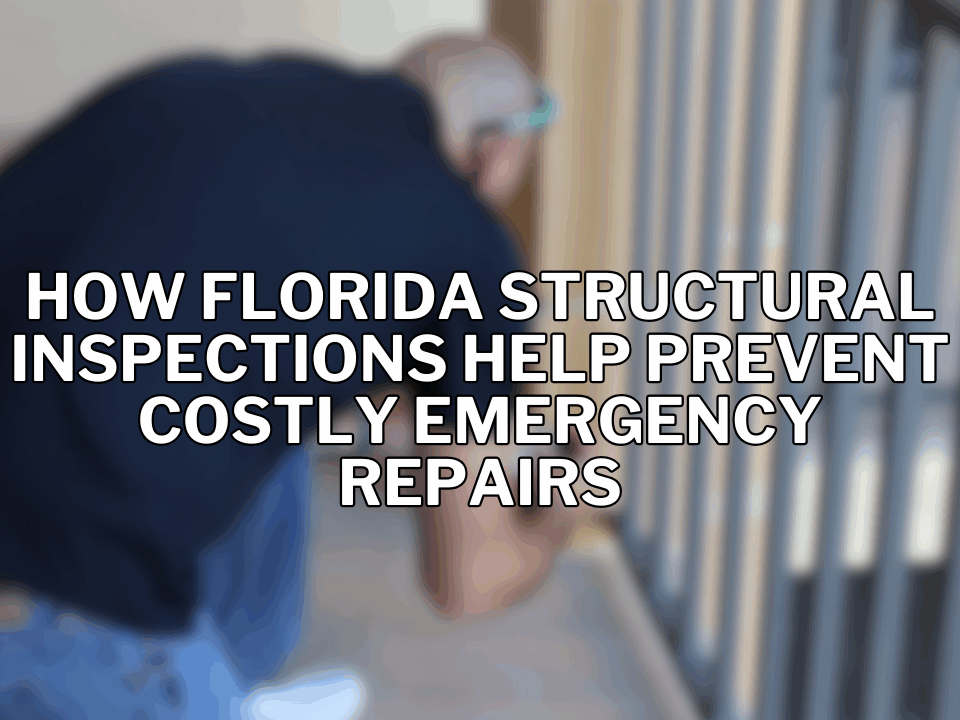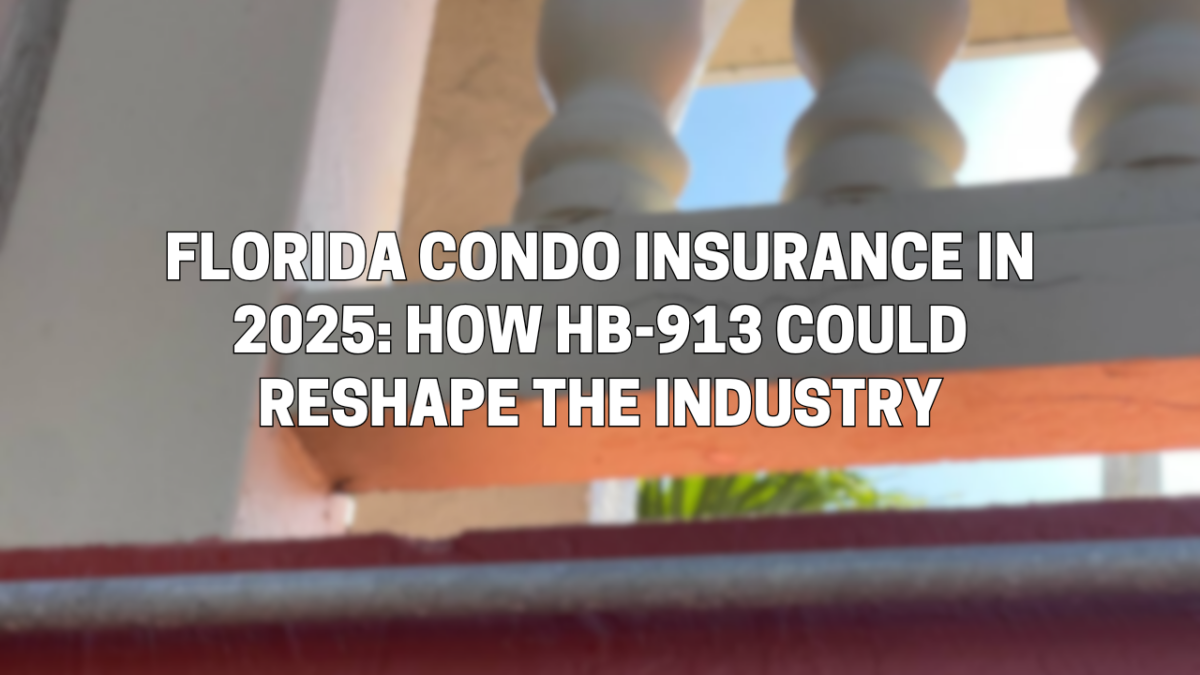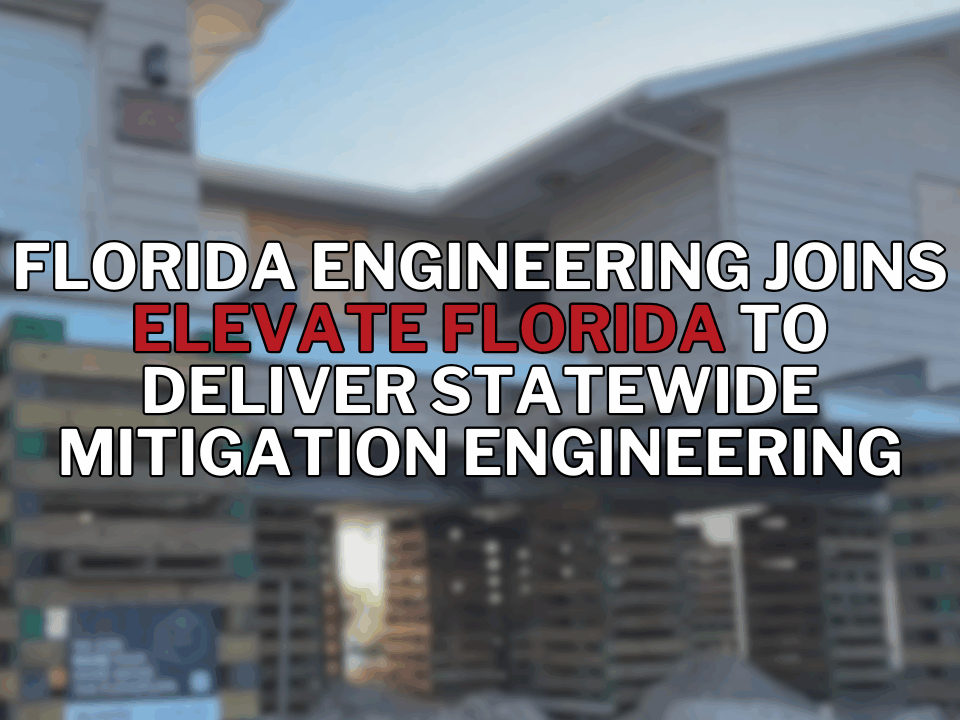Introduction – UPDATED 5/5/2025
Florida’s condominium insurance market is set for major change. On May 2, 2025, the Legislature unanimously approved House Bill 913, and the measure is now headed to Gov. Ron DeSantis for his signature . Alongside stricter penalties for noncompliance, the final bill also adds new deadlines, funding flexibilities, and disclosure requirements aimed at balancing safety with financial relief for condo owners.
Table of Contents
- The Condo Compliance Crisis
- HB 913: What It Proposed vs. What Passed
- Insurance and Financial Consequences
- New Flexibilities on Inspections, Funding & Repairs
- What Condo Owners Should Do Next
- Conclusion: Onward to the Governor’s Desk
1. The Condo Compliance Crisis
Florida’s safety laws overhauled after the June 2021 Surfside collapse have made milestone inspections and Structural Integrity Reserve Studies (SIRS) mandatory for older, taller condo buildings—but compliance remains low.
- Low Submission Rates: Fewer than 40 percent of South Florida’s qualifying condos have filed their milestone-inspection reports, leaving many buildings’ true conditions unknown.
- Rising Risk & Uncertainty: Uninspected structures may harbor hidden deterioration, undermining both safety and market confidence.
These challenges set the stage for HB 913’s tougher enforcement mechanisms.
2. HB 913: What It Proposed vs. What Passed
Original Proposal Highlights
- Bar state-backed Citizens Property Insurance from covering noncompliant associations
- Prevent inspection firms from also designing repairs
- Tie private-insurer eligibility to compliance
Final Bill Compromise
On unanimous passage, HB 913 now also includes:
- Extended Deadline for SIRS: Moves the structural-integrity study deadline from December 31, 2024, to December 31, 2025.
- “Habitable Stories” Threshold Clarification: Applies inspections to buildings with three or more habitable stories (not just ‘stories’) to close loopholes.
- Two-Year Reserve Pause: Allows condo associations to temporarily suspend reserve funding obligations for two years immediately after completing their milestone inspection.
- Funding Flexibility: Enables the use of lines of credit or loans to meet reserve requirements, subject to a majority-owner vote.
- Raised Study Threshold: Increases the deferred-maintenance cost threshold for items requiring inclusion in SIRS from $10,000 to $25,000.
- Disclosure Mandates: Requires architects, engineers, and contractors bidding on inspections/SIRS to disclose any intent to bid on related repair or replacement work.
These adjustments aim to ease the financial burden while preserving—and even strengthening—inspection integrity.
3. Insurance and Financial Consequences
If HB 913 becomes law:
- Loss of Citizens Coverage: Associations missing inspections/SIRS still face bar from Citizens Property Insurance, driving them to private markets with higher rates.
- Sharper Premium Hikes & Assessments: Private insurers may charge steep premiums or decline coverage, forcing condo boards to levy special assessments.
- Market Impact: Units in noncompliant buildings will likely see reduced buyer interest and declining appraisals, as lenders shy away from uninsured properties.
4. New Flexibilities on Inspections, Funding & Repairs
Beyond penalties, HB 913’s final form grants associations critical breathing room:
- Funding Workarounds: Two-year reserve pause and loan/credit line options help associations manage cash flow spikes.
- Objective Inspections: Disclosure rules and conflict-of-interest bans between inspectors and repair designers keep recommendations unbiased.
- Adjusted Scope: Higher cost thresholds and clarified building-story definitions ensure that reserve studies target the most pressing safety systems.
5. What Condo Owners Should Do Next
With HB 913 now on Gov. DeSantis’s desk, condo boards and unit owners should:
- Pre-Schedule Inspections & SIRS: Even with the extended deadline, demand will surge—book milestone inspections and reserve studies now.
- Review Funding Strategies: Evaluate whether a temporary reserve pause, line-of-credit, or loan makes sense for your association.
- Check Insurance Status: Confirm with Citizens and private carriers that your inspection reports are on file to avoid coverage gaps.
- Plan for Disclosures: If you’re an engineering or contracting firm, prepare to disclose any future repair-work bids as required.
6. Conclusion: Onward to the Governor’s Desk
HB 913’s unanimous legislative approval marks a pivotal moment for condo safety and finance in Florida. By blending enforcement with new flexibilities—extended deadlines, funding options, and stronger transparency rules—the bill seeks to protect residents without inflicting undue financial strain. Now, all eyes turn to Gov. DeSantis, whose signature will cement these reforms into law and usher in the next era of condominium oversight in Florida.
The Building Recertification Experts – Florida’s Condominium Inspections
- Phone: 941-391-5980
- Email: contact@fleng.com
- Address: 4161 Tamiami Trail, Suite 101, Port Charlotte, FL 33952
Connect With Us
Related Services
- Milestone Inspections
- Energy Calculation Services
- 25,30,40,50,60 Year Recertifications
- Pool Engineering Services
- Turnover Inspections
[This above text is for information purposes only and does not constitute engineering or legal advice. Please consult a professional engineer and licensed attorney for any specific answers to your questions about Milestone Inspections and the legal obligations milestone inspections entail.]






